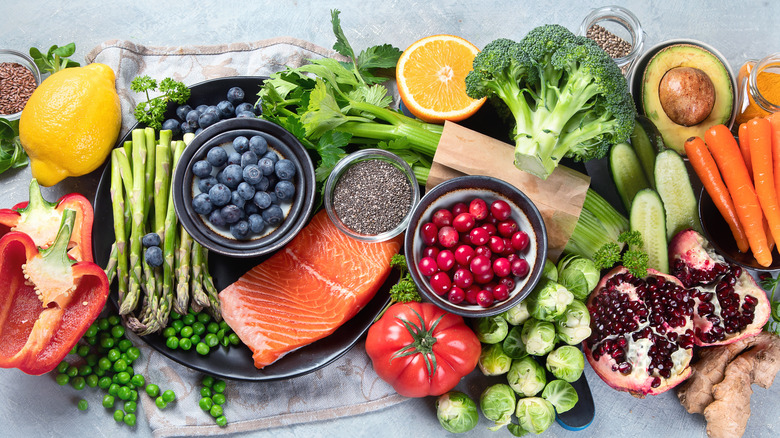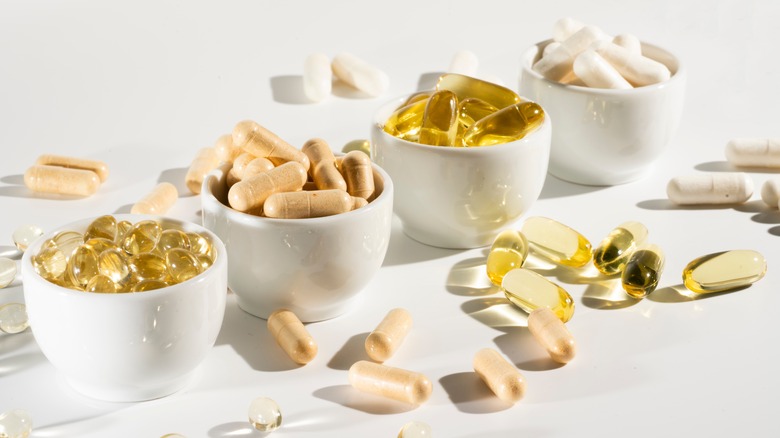Vitamins That Will Improve Your Dry Skin
Dry skin is a common condition that can affect anyone anywhere. Some people are more susceptible to dry skin if they live in colder regions or lack a moisturizing routine. Dry, flaky skin can be very uncomfortable, and itchy, and can cause bleeding and give you scabs and rashes. Sometimes, even with a moisturizing routine, you notice that your body still feels dry underneath and nothing you apply to your skin seems to work. If you don't have any other underlying skin issues, then you might want to take a gander at your vitamin levels to make sure you're not missing out on important nutrients.
The truth is that vitamins go a long way in ensuring that your body functions at its optimal level. They help carry out a boatload of biochemical transactions, especially ones dealing with the skin's health. If your dry skin is persisting even after you've tried everything, there are some vitamins you can stock up on that might do the trick.
Vitamins that improve dry skin
All vitamins are important, but there are some that exert a greater influence on your skin behavior and appearance. Here are some of the vitamins you need to improve your dry skin according to Healthline.
Vitamin E, also called tocopherol, helps repair dry skin due to its emollient and humectant nature.
It draws moisture from the air to the skin and keeps it from drying out. This is especially handy for those of us who live in cold, dry areas. Another great feature of tocopherol is that it is an antioxidant and helps protect your skin. Vitamin E is fat-soluble and can be found in foods like green leafy vegetables, nuts, seeds, breakfast cereal, and seafood.
Vitamin D, or calciferol, is another important fat-soluble vitamin that combats dry skin. Research shows that there is a link between low vitamin D levels in the blood and low skin moisture. Foods that contain vitamin D are salmon, tuna fish, sardines, liver, fortified dairy products, soybeans, and kale. The best way to get vitamin D, however, is through the sunlight's ultraviolet rays. They help us create vitamin D from cholesterol. The best time for sun exposure is at noon so that you don't receive the harsher rays later in the day.
Another vitamin that helps with dry skin is vitamin C or ascorbic acid. Abundantly found in citrus fruits, tomatoes, and green leaves, this vitamin aids collagen production and protects the skin barrier from water loss.
There are more ways you can get your skin the vitamins it needs
If you suffer from dry skin, then there are plenty of ways you can incorporate vitamins into your care regimen. In addition to the foods mentioned above, vitamins can also be absorbed into the skin through the use of topical substances such as creams and serums. A lot of brands include these vitamins in their lotion formulas, so it might be time to upgrade your current product selection.
Vitamins are also popularly taken as dietary supplements. This is a great option if you can't always access organic food. One of the best ways to treat dry or dehydrated skin is by making sure you take your daily vitamin requirement according to your age and weight class.
One thing to remember is that vitamins are not lone operators. They work hand in hand to increase one another's absorption and functionality, for instance, vitamin C helps the body to absorb and use vitamin E. So, you have to make sure you're getting all your vitamins so that all your hair growth efforts won't be in vain.


